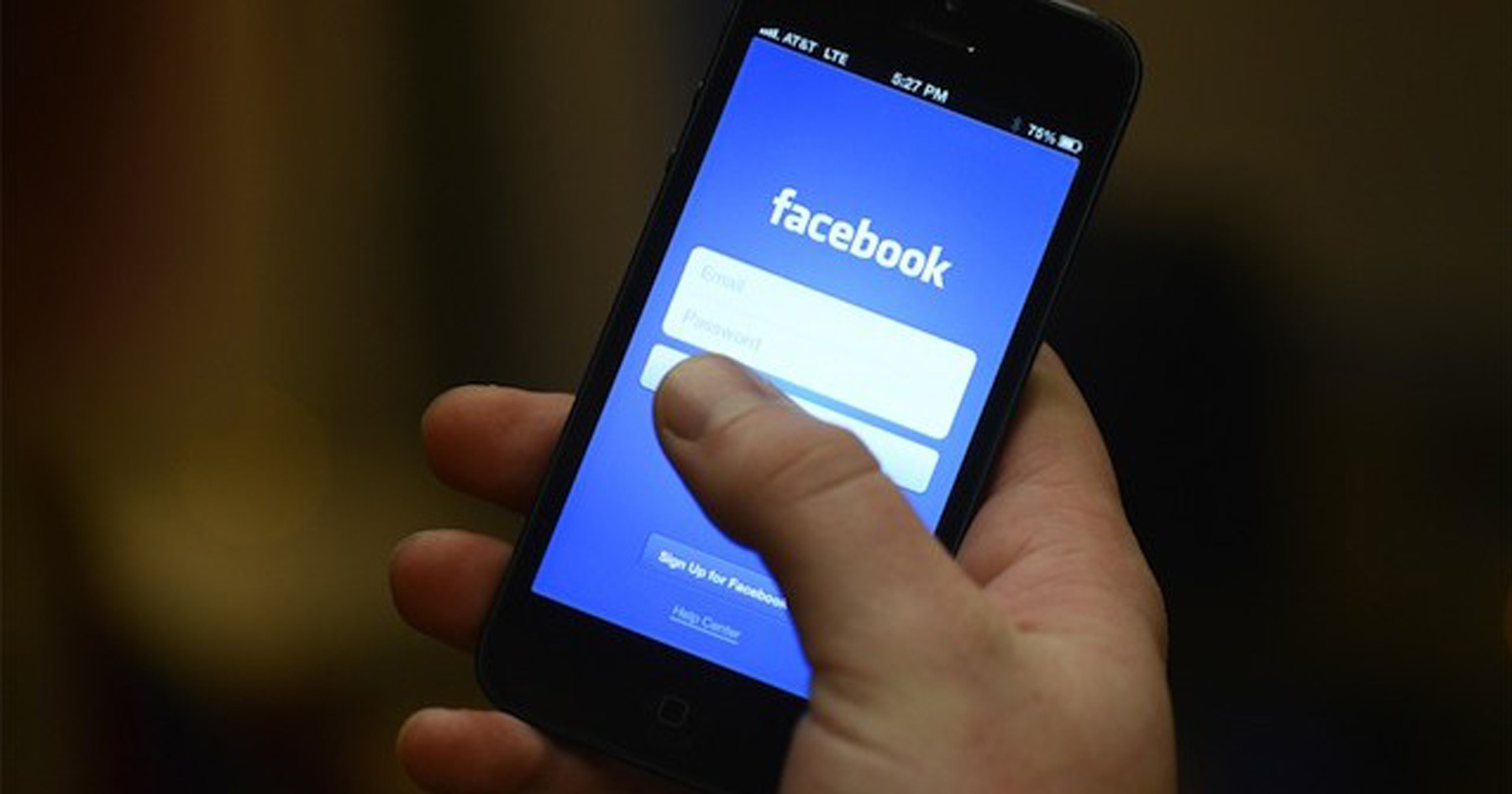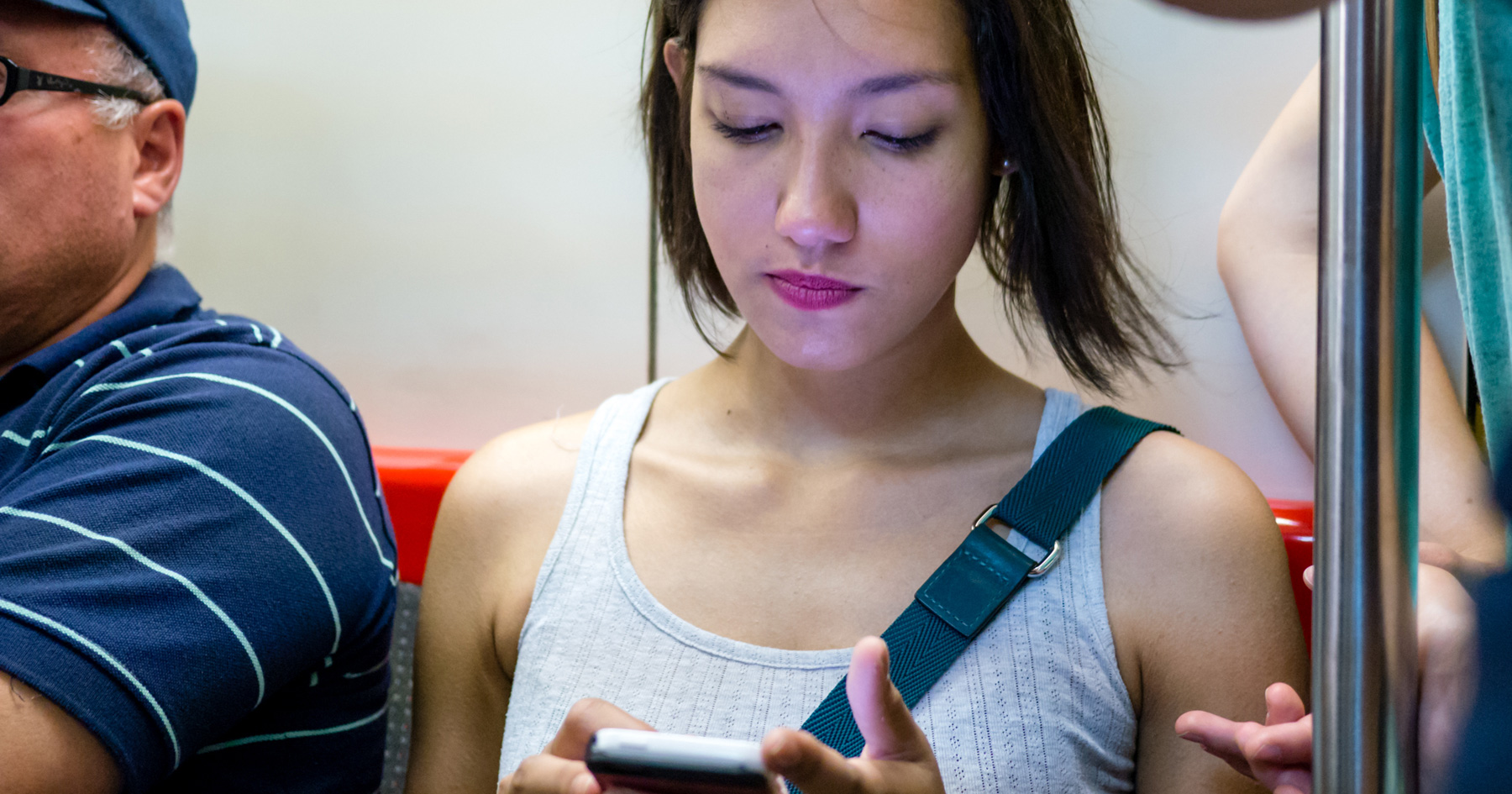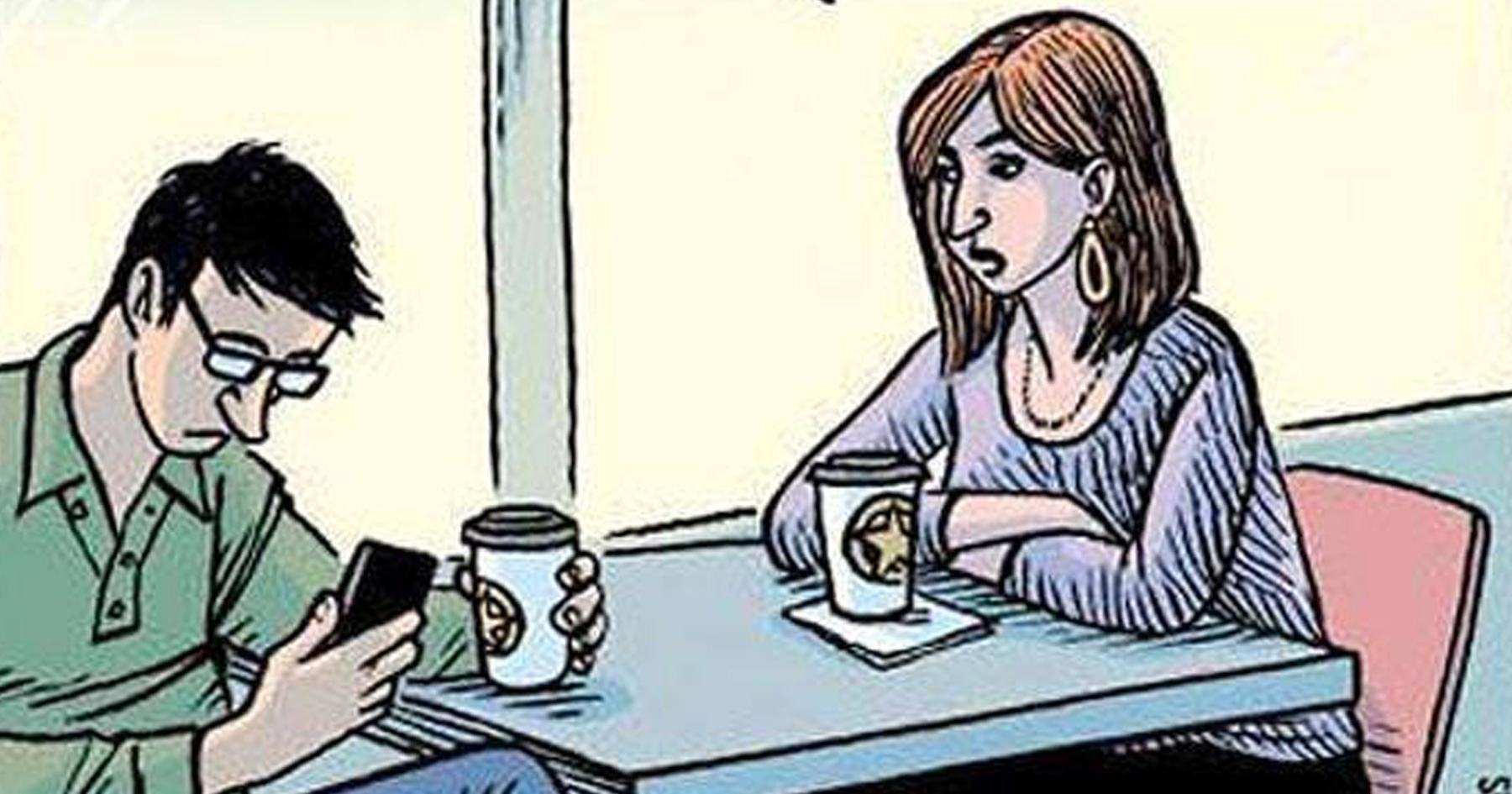What Happens When You Drop Your Cell Phone Addiction

By:
A cell phone is a lifeline, an external organ, an alarming addiction.
I decided to begin recovering from that addiction last week, after walking from work to the Grand Park Red Line stop.
I had my head buried in my Twitter feed. Then I looked up from my phone and saw something amazing: An older woman standing at the corner, taking in the Chicago skyline, studying the faces of the people rushing past (most of whom were also staring at phones), enjoying the music coming from the street performers a corner over.
She looked utterly present: caught up in the beauty of now.
I was inspired.

So in an attempt to be more present and wean myself off mobile social media, I deleted my two most-used mobile applications: Facebook and Twitter.
RELATED: Science Can Tell You If You Have a Smartphone Addiction
 Flickr/Maria Elena - flickr.com
Flickr/Maria Elena - flickr.com
Without their constant reminders of my online addiction, I was left thinking about things far more important than whether I'd received a “like” on a post or a “favorite” on a tweet.
It was a relief at first, but also stress-reducing. Habits die hard. I found myself searching my phone for an emergency Facebook check, only to remember that I deleted the app. When I got desperate, I went through the painful and long process of firing up my Safari browser to sign into my Facebook account.
After one day sans apps, I realized that, yes, I am overly dependent on my smartphone.
I took the “Smartphone Abuse Test” by David Greenfield of the Center for Internet and Technology Addiction. To my surprise, I scored a whopping 13 out of 15.
The message popped up: “Congratulations – you have completed the Smartphone Abuse Test. ... If you answer YES to more than five questions, you might benefit by examining how much time you spend on your Smartphone and consider changing your use patterns.” My 13 score is more than double the amount I should have scored, according to Greenfield.
I put my smartphone away, in a room far from where I was sitting. I imagine it felt similar to dropping off your child on the first day of kindergarten. I began to write, uninterrupted.
There’s a term for my dependency: Nomophobia, or no-mobile-phone phobia.
Deleting Facebook and Twitter from my phone has made me more productive. My attention span isn’t tested by my need to check notifications when I'm working. Rather, I’m likely now to forget Facebook exists.
RELATED: Reminder: Put Down Your Phone
How to reduce your phone dependency
 Flickr/Francisco Osorio - flic.kr
Flickr/Francisco Osorio - flic.kr
California State University psychology professor Larry Rosen suggests a technique to reduce smartphone dependency. He advises ignoring new notifications or alerts on your phone. Those dings create anxiety, and you react like a Pavlovian pup. They take you out of the zone.
Rather, Rosen advises a schedule to check your phone. Start with an interval of 15 minutes. Increase it gradually to 30 minutes, or whatever length of time suits your daily life and profession.
A digital detox is not only good for productivity, it's also good for social life and health.
There’s nothing more maddening than being with a friend, date, parent, or mentor and pouring yourself into a conversation, only to realize you're in second place for attention to your partner’s Twitter feed.
 Bizarro/Dan Piraro - wordpress.com
Bizarro/Dan Piraro - wordpress.com
It's not an uncommon experience. About 52 percent of smartphone owners check their phones a couple times an hour or more, a recent Gallup survey found. About 81 percent of owners have their phones with them during all waking hours. Many sleep with their smartphones nearby, if not right there in bed.
Cell phone overuse can be the cause of mental disorders. Rosen studied how cell phones make college students anxious. Simply being near a cell phone – it didn’t have to be the student’s personal cell phone – induced anxiety.
He hypothesized that smartphones play a role in increased anxiety. The latest edition of the “Diagnostic and Statistical Manual of Mental Disorders” lists anxiety also as a severe withdrawal symptom: A gradual weaning from dependency is important to avoid undue anxiety.
App addiction is harder to kick than one might think. Oddly enough, there’s an app for that: It’s called “Pause.” It may seem like a liquor bottle label recommending Alcoholics Anonymous, but the app tracks how long you keep your phone on airplane mode and holds you accountable to your goals to reduce your digital addiction.
Demonizing technology isn’t my goal. Apps provide invaluable resources to do things such as learn a new language, read the newspaper, get healthy, play games with friends, watch movies, read or listen to books, support nonprofits, and, now, curb smartphone addiction.
But it’s important to maximize the good in technology and minimize the detrimental aspects.
Without Facebook or Twitter as a social or boredom crutch, I live more presently. I prefer living in the real world rather than in the digital one.
Bets on how long it’ll last?
